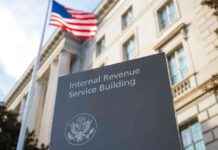President Donald Trump has announced a new trade policy that will have significant implications for countries buying oil or gas from Venezuela. In a recent statement on Truth Social, the former president revealed plans to impose a 25% tariff on all imports from nations that engage in trade with Venezuela. Additionally, Trump declared that Venezuela itself would face additional tariffs as part of this measure.
The decision to implement these tariffs stems from what Trump described as Venezuela’s “very hostile” stance towards the United States. According to the post, countries that purchase oil or gas from Venezuela will be required to pay the 25% tariff on all their trade with the U.S. starting on April 2nd. In addition to this broad tariff, Venezuela will also be subject to a “Secondary” tariff due to its association with the criminal gang Tren de Aragua.
The Trump administration has cited concerns about national security as a key factor in this trade policy shift. Specifically, the decision to impose tariffs on countries buying Venezuelan oil is linked to efforts to crack down on illegal immigration and deport individuals associated with criminal organizations like Tren de Aragua. By targeting nations that support Venezuela’s oil industry, the U.S. aims to apply economic pressure and deter further cooperation with the South American country.
Expert Analysis on Trade Policy Impact
Economic experts have raised concerns about the potential consequences of Trump’s tariff announcement. Dr. Emily Sanchez, a trade policy analyst at a leading think tank, warns that such measures could lead to retaliatory actions from affected countries. “Tariffs often trigger a chain reaction in global trade, prompting other nations to respond with their tariffs or trade restrictions,” she explains.
Sanchez emphasizes the importance of considering the broader economic implications of these tariffs, as they could disrupt established trade relationships and impact various industries. She notes that while the intention behind the tariffs may be to address specific geopolitical concerns, the ripple effects on the global economy must be carefully evaluated.
Global Response and Future Outlook
The news of Trump’s tariff announcement has sparked reactions from around the world, with many countries assessing the potential impact on their economies. Some nations that rely on Venezuelan oil imports are already strategizing how to navigate these new trade restrictions and minimize the financial repercussions.
As the April 2nd deadline approaches, diplomatic channels are expected to be active as countries seek to negotiate exemptions or alternative solutions to mitigate the impact of the tariffs. The evolving situation underscores the interconnected nature of the global economy and the need for diplomatic engagement to address trade disputes effectively.
In conclusion, President Trump’s decision to impose tariffs on countries buying Venezuelan oil represents a significant shift in U.S. trade policy. The implications of these tariffs extend beyond economic considerations, touching on national security, immigration enforcement, and international relations. As the trade landscape continues to evolve, stakeholders across industries and geographies will be closely monitoring developments to assess the long-term ramifications of these measures.
































